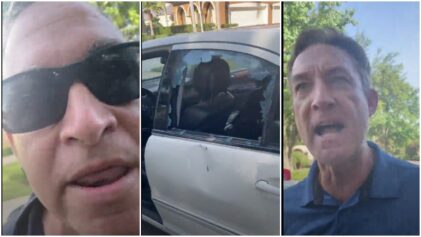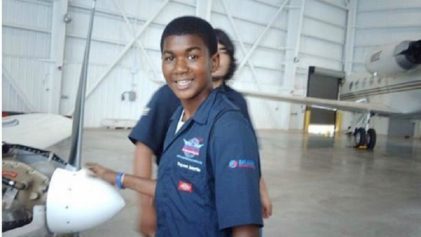With the George Zimmerman murder trial churning toward conclusion, cities in Florida such as Miami and Sanford, where Trayvon Martin’s murder occurred, are nervously making plans to prevent any riots or explosions of violence if Zimmerman is acquitted.
Miami has had a previous experience. The city became a tinderbox 33 years ago, after an all-white jury acquitted a Miami cop in the death of Arthur McDuffie. Three miles of the city exploded in a riot that resulted in 18 deaths and $100 million in damage.
Local police and community leaders in Miami are meeting to plan a way to control the reaction, even turning to social media and Miami Heat stars for help.
The Miami-Dade Community Relations Board met with police and a Criminal Justice and Law Enforcement Committee to discuss the trial.
“We want people to respond in a positive way. If they have frustrations they want to vent, we want them to do that in an orderly and organized way. So the message is: Peace for Trayvon,” board member Dr. Walter T. Richardson told CBS Miami.
The Miami Herald reports that board members are reaching out to Miami Heat basketball players, asking them to lead a “unity walk” through Miami’s inner city after the verdict is announced.
In Sanford, when CNN asked city manager Norton Bonaparte, who is African-American, whether he was fearful of a violent reaction in the city of 50,000, he said, “That’s a scenario, that’s certainly a possibility.”
How do you prepare for that?
“Through law enforcement. It’s a good question. But it’s not one I’m going to go into detail on,” he said.
CNN aired footage of Sanford Police Chief Cecil Smith, who is also African- American and has only been on the job since April, going door-to-door in the black community with a police officer, appealing for calm.
“We have plans in place to work with our other departments, with the sheriff’s department,” Smith said. “As far as the particulars of the plan, we’re not releasing.”
Sanford minister Valarie Houston, pastor of the 600-member Allen Chapel African Methodist Episcopal Church, is one of a coterie of ministers who have been attending the trial, hoping to glean enough information about the proceedings to let their congregations know that justice was served.
Asked by CNN whether she would be able to tell her community that justice had been served even if Zimmerman is acquitted, Houston said: “As a leader in this community, I would have to. I feel confident in the skills and the God-given ability that I have to be able to articulate. Now will they accept what I say? That will be totally up to them.”
As the prosecution in the murder trial approaches the end of the presentation of its case, media commentators and legal experts are beginning to concede that the evidence and testimony so far is likely too weak to land a second degree murder conviction, meaning Zimmerman may walk.
“I don’t think there is much expectation that Mr. Zimmerman will be found guilty,” Georgetown University professor Michael Eric Dyson said yesterday on MSNBC’s Martin Bashir Show. “I think that there are mass people invested in this case because their children are vulnerable like Trayvon Martin [who] feel that he is being re-traumatized and that there is little hope he will be convicted.”
The prosecution’s case was severely damaged after the testimony of Martin’s friend Rachel Jeantel, who set off a national debate about race and black youth culture following her muddled, defiant and inarticulate testimony, during which she revealed that Martin called Zimmerman a “creepy-ass cracker.”
It also was hurt by the testimony of neighbor Jonathan Good, who saw the confrontation between two men outside his townhouse on the dark, rainy night and who supported Zimmerman’s contention that Martin was on top of him.
Good described a scuffle that supported Zimmerman’s contention that Martin had been the aggressor, throwing the punches and pounding Zimmerman’s head into the ground.
Good called the blows “ground and pound” and said, “I could tell that the person on the bottom had a light skin color.”
In the latest developments in the case, the jury heard testimony from instructors from two of criminal justice classes who had Zimmerman as a student. Prosecutors are trying to have the jury believe that Zimmerman, a neighborhood watch volunteer, profiled and pursued Martin partly driven by his desire to be a police officer.
Their case hinges on proving that if Zimmerman was the aggressor, his decision to shoot Martin was not self-defense.


